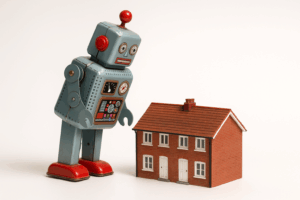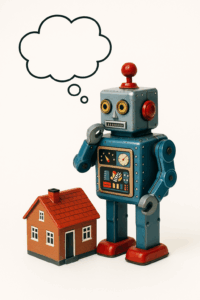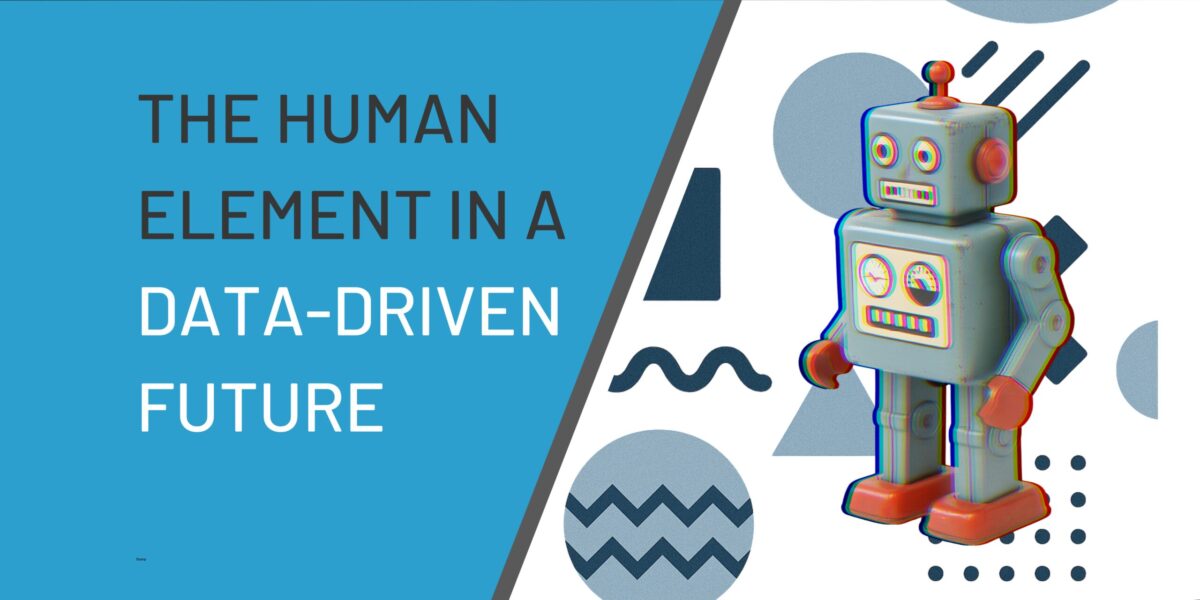Artificial intelligence has become one of the most talked about developments of recent years. From healthcare to finance, it is being presented as a tool that could reshape entire industries. Property is no exception. New systems promise to speed up valuations, automate due diligence, and even forecast future demand.
Yet property has always been more than numbers on a screen. Selling or buying a home is not just a financial decision; it is also a personal milestone. That raises a question worth reflecting on: in a world where algorithms handle more of the process, what space will remain for the human element?
The Rise of Automation in Property
Technology is already woven into the way people buy and sell homes. Online portals have replaced the high-street window as the first point of search. Automated valuation tools give sellers a figure in seconds, drawing on vast datasets that would once have taken days to analyse. Conveyancing software is beginning to standardise paperwork, while digital ID checks and e-signatures are steadily reducing delays.
Artificial intelligence adds another layer to this trend. Its promise lies not just in doing things faster, but in spotting patterns no human could detect at scale — whether in pricing, market demand, or risk assessment. This is why it attracts so much attention: the sense that something familiar could suddenly operate at a very different pace, powered by systems most people will never see.
Property is More Than Data
However advanced the technology becomes, property transactions are never only about data. A valuation may capture square footage, location, and recent sales, but it cannot measure the attachment someone feels to a family home or the relief of finding a buyer after months of uncertainty. These human dimensions sit outside the reach of an algorithm.
For many sellers, the decision to move is tied to life events — a new job, a change in family circumstances, or the need for financial security. In those moments, reassurance and empathy matter as much as speed or accuracy. An AI system can produce a figure on a screen, but it cannot acknowledge the hesitation behind accepting an offer or the significance of handing over the keys.

Trust and Reassurance
Trust has always been central to property transactions. Buyers want confidence that what they are purchasing is sound; sellers want certainty that an offer will complete. In a process often described as stressful, reassurance is as valuable as efficiency.
The question is whether that trust can be placed in systems rather than people. An algorithm might confirm that a property is priced correctly, but will a seller feel secure accepting its judgement without human oversight? Likewise, a buyer may welcome faster checks, yet still prefer the reassurance of speaking to someone who can explain the details in plain language.
Technology can process information, but it is people who give that information context and meaning. That is why, even as automation becomes more capable, the desire for human involvement remains difficult to replace.
A Hybrid Future?
Looking ahead, two possibilities often emerge. One is a market where AI becomes the quiet engine behind most transactions: valuations produced instantly, legal checks completed in moments, and offers agreed with minimal delay. In this version of the future, efficiency takes centre stage and the human role is reduced to oversight.
The other possibility is a market shaped by balance. Here, technology provides the speed and data, while people remain central to interpretation, reassurance, and decision-making. Automation works in the background, but trust and confidence are still built face-to-face.
Which of these paths the industry follows is not yet clear. What is certain is that the property market sits at the intersection of data and human experience — and its future will depend on how those two forces continue to meet.
 Artificial intelligence is already finding a place in the property world, but its ultimate role remains uncertain. Some see the prospect of faster, cleaner transactions; others question what might be lost if too much is left to machines. What unites both perspectives is the recognition that property is never only about efficiency – it is about people, decisions, and the weight of life events.
Artificial intelligence is already finding a place in the property world, but its ultimate role remains uncertain. Some see the prospect of faster, cleaner transactions; others question what might be lost if too much is left to machines. What unites both perspectives is the recognition that property is never only about efficiency – it is about people, decisions, and the weight of life events.
As technology develops, the question may not be whether AI can transform the process, but how much space we still choose to make for the human element. Whatever direction the market takes, the commitment of NAPB members remains the same: to provide a trusted, professional service to sellers navigating an evolving landscape. In that sense, the future may be unwritten, but the role of reassurance is here to stay.

